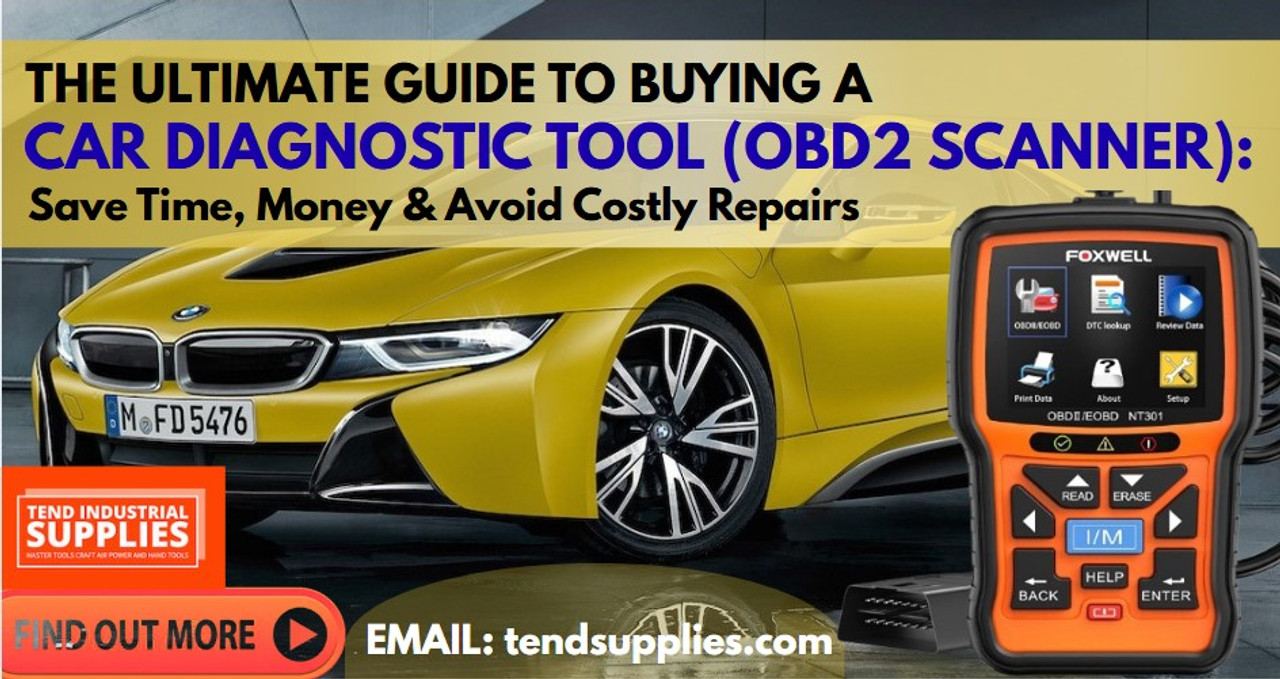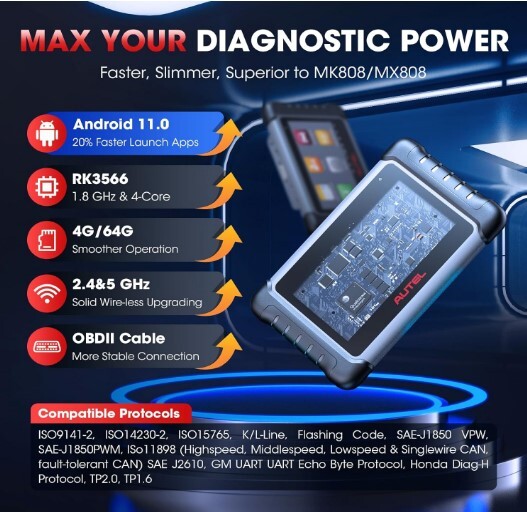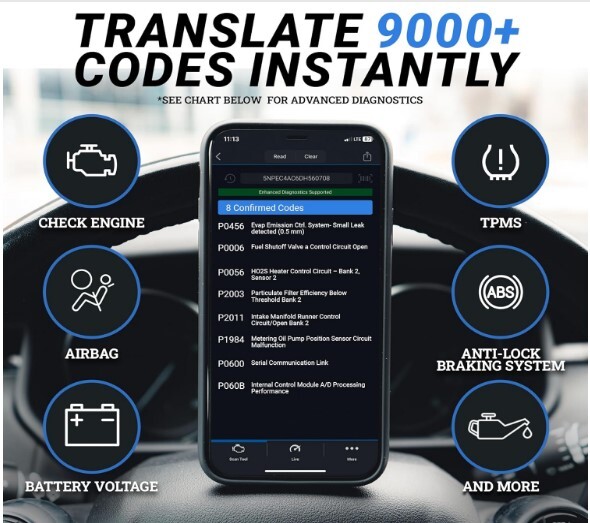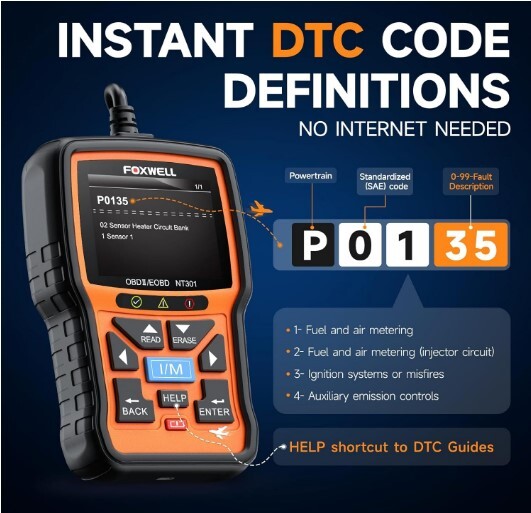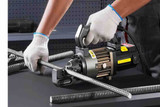The Ultimate Guide to Buying a Car Diagnostic Tool (OBD2 Scanner): Save Time, Money & Avoid Costly Repairs
The Ultimate Guide to Buying a Car Diagnostic Tool (OBD2 Scanner)
In today’s world, where vehicle maintenance costs are rising, investing in the best car diagnostic tool (OBD2 scanner) is no longer a luxury but a necessity. Whether you are a car owner in the United States, Canada, the UK, or Nigeria, or you manage a fleet of vehicles, having the right OBD2 scanner can save you time, money, and stress by avoiding costly repairs. With the growing demand for reliable automotive diagnostic scanners, drivers are turning to advanced yet affordable tools that can read check engine codes, monitor real-time data, and provide accurate vehicle health reports.
This ultimate guide to buying a car diagnostic tool will walk you through everything you need to know, from choosing between basic OBD2 code readers and professional diagnostic scanners to understanding compatibility with cars sold in different regions such as North America, Europe, and Africa. By the end, you’ll be fully equipped to select the right OBD2 scanner for your car, SUV, or truck, ensuring long-term savings and peace of mind.
Key Takeaways
- Empower Yourself & Save Money: A car diagnostic tool allows you to understand "check engine" light warnings yourself, saving you from unnecessary trips to the mechanic and helping you make informed decisions about repairs.
- Know the Types: Tools range from basic code readers for simple diagnostics to advanced DIY scanners and professional-grade tools for more complex issues like ABS or airbag systems. Choose based on your skill level and needs.
- Focus on Essential Features: At a minimum, look for a tool that can read and clear codes, display live data from sensors, and show freeze frame data to help pinpoint when a problem occurred.
- Compatibility is Key: Before buying, always confirm that the scanner is compatible with your specific vehicle's make, model, and year, though most work with cars made in 1996 or later.
- Consider Practical Factors: Your final choice should balance your budget, the tool's ease of use, and whether you prefer a reliable wired connection or the convenience of a wireless Bluetooth scanner that pairs with your phone.
Why You Need a Car Diagnostic Tool
In the past, diagnosing car trouble was often a guessing game. But since 1996, all cars sold in the United States have been equipped with an On-Board Diagnostics (OBD2) system. This system monitors your vehicle's performance and logs any issues as "trouble codes." A car diagnostic tool is a device that plugs into your car's OBD2 port and reads these codes, giving you a clear indication of what's wrong.
Here's why every car owner should consider having one:
- Save Money: Instead of rushing to a mechanic for every little warning light, you can diagnose the problem yourself. You might find it's a simple fix you can handle on your own, or you'll be better informed when you do need to take it to a professional.
- Prevent Further Damage: Ignoring a warning light can lead to more serious and expensive problems down the road. A diagnostic tool helps you address issues promptly.
- Peace of Mind: Knowing what's wrong with your car can alleviate a lot of stress. You'll be able to make informed decisions about repairs and avoid being taken advantage of by dishonest mechanics.
- Pre-Purchase Inspections: When buying a used car, a diagnostic tool can be invaluable. It can reveal hidden problems that the seller might not have disclosed.
Understanding the Different Types of Car Diagnostic Tools
Car diagnostic tools come in a wide range of prices and capabilities. Here's a breakdown of the most common types:
Basic Code Readers (OBD2 Scanners)
These are the most affordable and straightforward tools. They are designed to read and clear the generic trouble codes that trigger the "check engine" light. They are a great option for beginners and those who just want to know the basics.
DIY Scanners
These are a step up from basic code readers. They offer more features, such as the ability to read manufacturer-specific codes, view live data from your car's sensors, and check for emissions readiness. They are a good choice for car enthusiasts and those who want to do more of their own repairs.
Professional-Grade Diagnostic Tools
These are the most advanced and expensive tools. They are used by professional mechanics and offer a wide range of features, including the ability to diagnose problems with the ABS, SRS (airbag), and transmission systems. They can also perform advanced functions like reprogramming control modules.
Key Features to Look for in a Car Diagnostic Tool
When shopping for a car diagnostic tool, here are some of the most important features to consider:
- Code Reading and Clearing: This is the most basic function of any diagnostic tool. It should be able to read and clear both generic and manufacturer-specific trouble codes.
- Live Data: This feature allows you to view real-time data from your car's sensors, such as engine RPM, vehicle speed, and coolant temperature. This can be very helpful for diagnosing intermittent problems.
- Freeze Frame Data: When a trouble code is triggered, the OBD2 system takes a snapshot of the vehicle's operating conditions at that moment. This "freeze frame" data can provide valuable clues about the cause of the problem.
- I/M Readiness Status: This feature tells you if your car's emissions systems are ready for an inspection. This is a must-have if you live in an area with emissions testing.
- VIN, CIN, and CVN: The ability to retrieve your vehicle's identification number (VIN), calibration identification number (CIN), and calibration verification number (CVN) can be useful for verifying that your car's computer has the correct software.
- Advanced Functions: If you want to do more than just read "check engine" light codes, look for a tool that can diagnose problems with the ABS, SRS, and transmission systems.
Factors to Consider Before Buying
Before you make a purchase, here are a few more things to keep in mind:
- Vehicle Compatibility: Make sure the tool you choose is compatible with your specific make and model of vehicle. Most tools work on all 1996 and newer vehicles, but it's always a good idea to double-check.
- Ease of Use: If you're not a professional mechanic, you'll want a tool that is easy to use and understand. Look for a tool with a clear display, intuitive menus, and helpful instructions.
- Software Updates and Support: Cars are constantly evolving, so it's important to choose a tool that can be updated with the latest software. Good customer support can also be a lifesaver if you run into any problems.
- Wired vs. Wireless: Traditional diagnostic tools plug directly into your car's OBD2 port. However, there are now many wireless options that connect to your smartphone or tablet via Bluetooth. These can be more convenient, but they may not be as reliable as a wired connection.
- Your Budget: Car diagnostic tools can range in price from under $20 to over $1,000. Set a budget before you start shopping and stick to it.
Our Top Picks for DIY Mechanics
Here are a few of our favorite car diagnostic tools for DIY mechanics:
- Autel MaxiCOM MK808S: This is a powerful and versatile tool that offers a wide range of features at a reasonable price.
- BlueDriver Bluetooth Pro: This is a popular wireless scanner that is easy to use and provides a wealth of information.
- FOXWELL NT301: This is a great budget-friendly option that is perfect for beginners.
Frequently Asked Questions (FAQs)
- What is an OBD2 scanner and why do I need one? An OBD2 scanner, or car diagnostic tool, is a device that plugs into your vehicle's On-Board Diagnostics port (standard on all cars since 1996). It reads "trouble codes" generated by your car's computer to tell you why your "check engine" light is on, helping you save money and make informed repair decisions.
- Will any OBD2 scanner work on my car? Most OBD2 scanners are designed to work with all vehicles manufactured for sale in the U.S. from 1996 onwards. However, it's always best to double-check the tool's specifications to confirm it's fully compatible with your specific make and model before buying.
- What's the difference between a basic code reader and a more expensive scanner? A basic code reader can read and clear the generic trouble codes that trigger the "check engine" light. More expensive DIY or professional scanners offer advanced features like reading manufacturer-specific codes, viewing live sensor data, and diagnosing other systems like the ABS, airbags (SRS), and transmission.
- Can a diagnostic tool fix my car's problem? No, a diagnostic tool only identifies the problem by reading the trouble code; it does not fix the underlying issue. It gives you the information needed to perform the repair yourself or to tell a mechanic exactly what the problem is. After a repair, you can use the tool to clear the code and turn off the warning light.
- What is "live data" and why is it useful? Live data is a feature that streams real-time information from your car's sensors directly to the scanner's screen. You can monitor things like engine RPM, vehicle speed, and coolant temperature, which is extremely helpful for diagnosing intermittent problems that don't always trigger a code.
- Do I need a tool that can read ABS and SRS codes? If you only want to diagnose "check engine" light issues, a basic code reader is sufficient. However, if you want to troubleshoot problems with your car's Anti-lock Braking System (ABS) or airbag system (SRS), you will need a more advanced DIY or professional-grade scanner that explicitly lists these functions.
- Are wireless Bluetooth scanners better than wired ones? It's a matter of preference. Wireless scanners offer the convenience of connecting to your smartphone or tablet, providing a user-friendly interface. Wired scanners are often considered more reliable as they have a direct physical connection and don't depend on battery life or a stable Bluetooth pairing.
- How much should I expect to spend on a good car diagnostic tool? The price can vary significantly based on features. Basic code readers can be found for under $20, while powerful, feature-rich DIY scanners are typically in the $100 to $500 range. Professional-grade tools used by mechanics can cost over $1,000.
Related Articles:
- The 5 Must-Have Diagnostic Scanners for Professional Mechanics in 2025
- Top 5 Diagnostic Tools Every Mechanic Should Own
- Best Budget OBD2 Scanners on Amazon in 2025
- ANCEL AD310 OBD II Scanner Review: A Must-Have for Car Enthusiasts?
- Basic vs. Advanced: What's the Difference Between a Code Reader and a Professional Scanner?
Conclusion
Choosing the right car diagnostic tool (OBD2 scanner) is one of the smartest investments any car owner, DIY mechanic, or fleet manager can make. Instead of wasting time and money at the repair shop for simple check engine light issues, you can quickly diagnose problems, monitor vehicle performance, and prevent costly breakdowns from the comfort of your garage or driveway.
Whether you’re in the United States, Canada, the UK, or Nigeria, having an accurate, reliable, and easy-to-use automotive diagnostic scanner ensures you stay in control of your vehicle’s health. From basic code readers for everyday drivers to professional-grade OBD2 scanners for advanced diagnostics, the right tool will save you money, extend your car’s lifespan, and give you peace of mind on every drive.
Call to Action
Ready to Find Your Perfect Diagnostic Tool?
Don’t wait until the next unexpected breakdown. Take charge of your vehicle’s maintenance today with a trusted OBD2 scanner from Tend Industrial Supplies. Explore our wide range of car diagnostic tools, code readers, and advanced automotive scanners, all carefully selected to meet the needs of drivers across North America, Europe, and Africa.
Shop now at Tendsupplies.com and discover the perfect car diagnostic tool to keep your vehicle running smoothly, safely, and cost-effectively.
Still have questions or need a personalized recommendation for your specific car? Our knowledgeable team is here to help. Email us directly at sales@tendsupplies.com for fast, friendly support.


